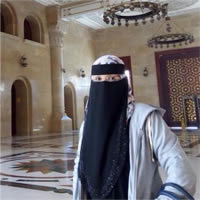

Driving equal opportunities for a better world
Effective responses to humanitarian crises, fostering lasting peace and security, and forging pathways for sustainable development all depend on women’s contributions.
Women must be part of the solution
We launched Female First with the mission to create a more equitable and inclusive aid and development sector in fragile and conflict affected countries. How did we plan to do this? By improving women’s access to decent work in fragile and conflict-affected countries. Female First was underpinned by the goal to achieve 30% female representation across our consultant workforce by 2030. While we reached and exceeded that goal in 2022, eight years early, we remain steadfast in our commitment.
Our three-step approach:
Source – Build our talent pool of qualified women humanitarians.
Submit – Ensure women are represented in shortlists.
Select – Advocate for the importance of women’s participation in the workforce.
OUR FEMALE FIRST IMPACT
+
Women humanitarian and development professionals
%
Female representation in our consultant roles globally
+
Female candidates on our database
The number of awards we’ve won
CTG is a proud signatory of the Women’s Empowerment Principles. We continue to use our influence in our local communities to empower women in the workplace, marketplace and community.
TRAINING WOMEN FOR A BRIGHTER FUTURE
CTG’s Female First Job-Readiness Workshops equip young women with the knowledge and skills they need to ease their entry into the formal labour market. To date, CTG has trained 150 young women across Gaza, South Sudan and Somalia.
Read moreWOMEN IN AID:
CTG INTERNSHIP PROGRAMME
This programme aims to engage young women interested in aid and development and gender equality. We work with young women to provide tangible work experience opportunities to support them with launching successful careers in the aid and development sectors and beyond.
This internship will help shape my career… it is a great privilege to have this opportunity to learn from professionals in the field and to have the opportunity to work on projects that matter.
– Linda, CTG Finance Intern in Nigeria
CHALLENGING GENDER BIAS
IN HUMANITARIAN EMPLOYMENT

My path to becoming a Human Rights Monitor, started with a passion for the law. In Hadhramaut, I was the first female lawyer. There was a big outcry, especially from my father’s tribe, as they say that being a lawyer is a man’s job.
LAMEES HASAN AL-HAMDI Human Rights Monitor, Yemen
Our International Women’s Day 2024 video



